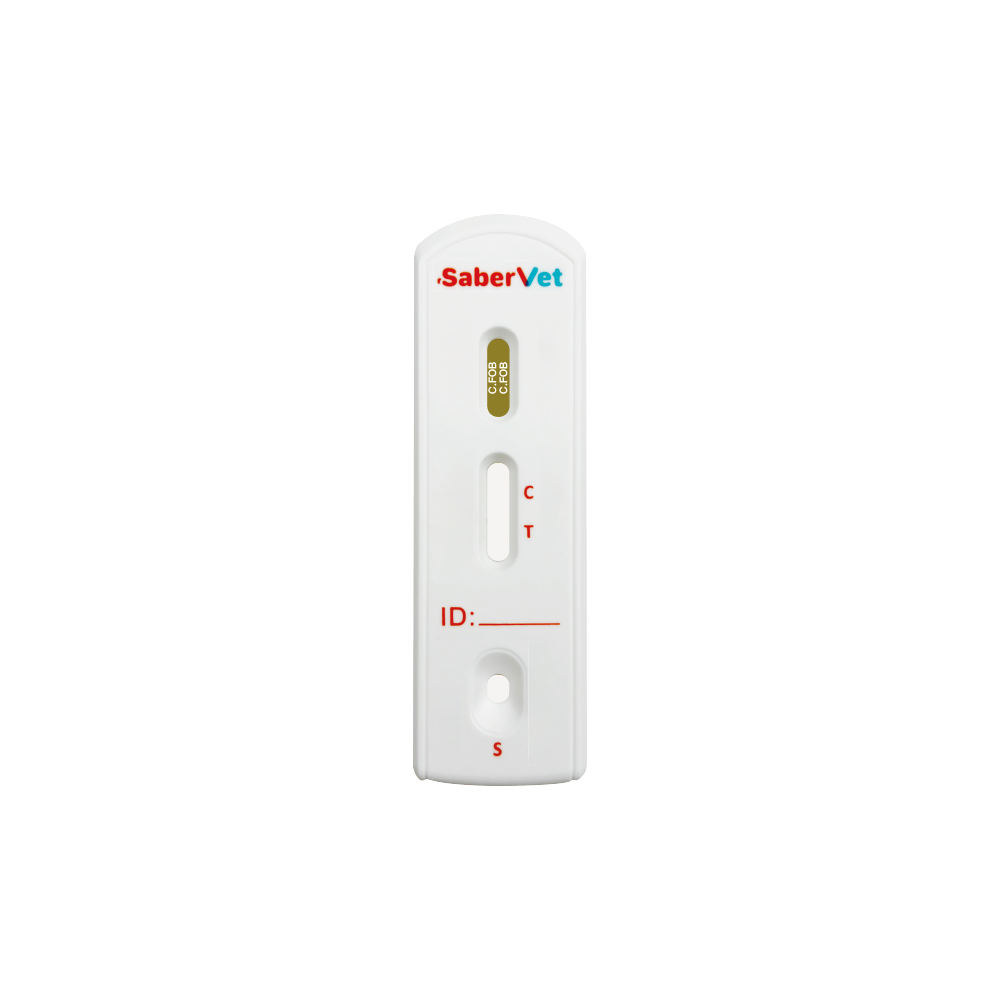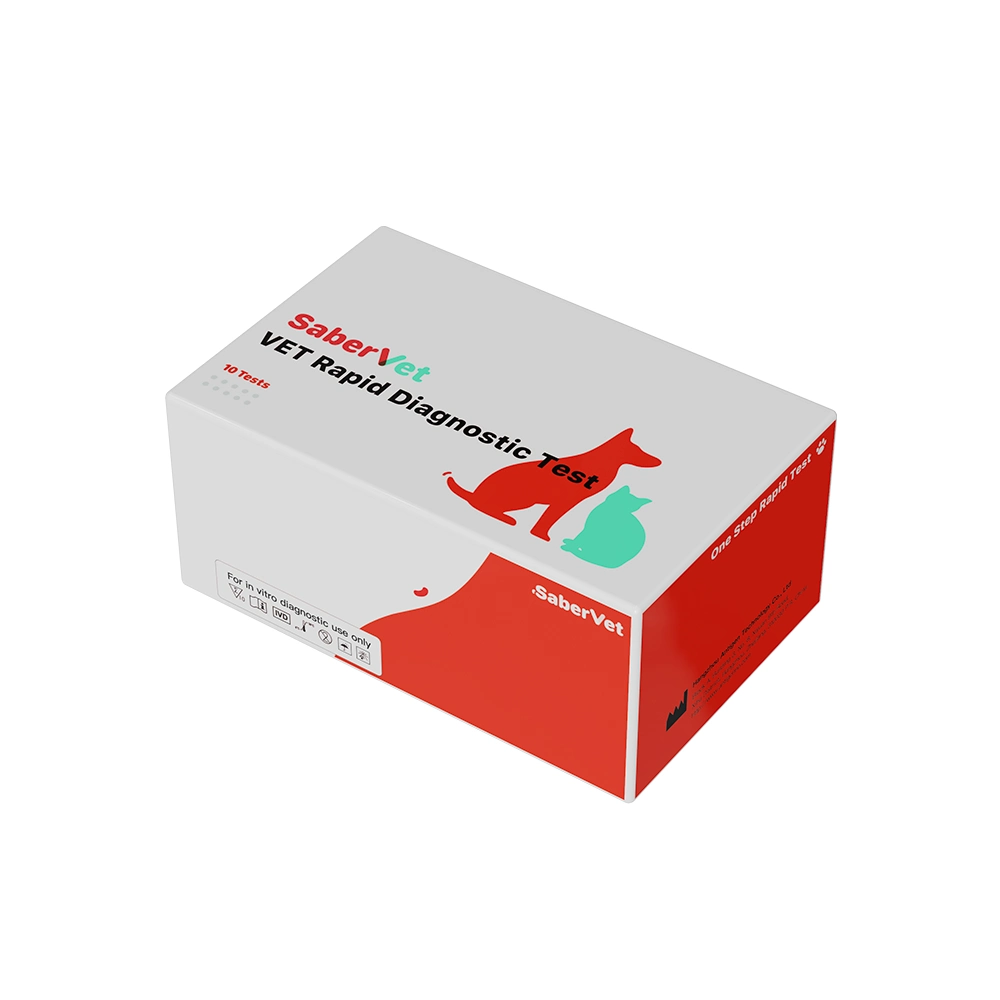Fecal occult blood in dogs refers to a clinical symptom of the presence of blood in the feces that is not visible to the naked eye.
This symptom may be caused by certain diseases of the digestive tract or intestines. Testing for this symptom can determine whether dogs have gastrointestinal or intestinal diseases.
Pathological Introduction
Gastrointestinal bleeding: The causes of gastrointestinal bleeding may be mechanical (such as ulcer rupture) or inflammatory (such as inflammatory bowel disease). One of the most common reasons is diseases or injuries inside the digestive tract, such as gastric ulcers, intestinal inflammation, tumors, or injuries. These conditions may lead to blood entering the digestive tract.
Food allergy or poisoning: Some dogs may have allergic reactions to specific foods or ingest toxic substances, leading to gastrointestinal inflammation and bleeding, manifested as blood in the stool.
Intestinal parasite infections: Such parasitic infections as hookworms and tapeworms can cause damage to the intestinal mucosa and bleeding, resulting in blood in the stool. This condition is usually accompanied by other symptoms such as diarrhea and weight loss.
Infectious diseases: Such bacterial, viral, or other pathogen infections as bacterial enteritis and canine distemper may cause damage to the intestinal mucosa and bleeding, resulting in blood in the stool.
Intestinal tumors: Malignant or benign intestinal tumors may cause damage to the intestinal mucosa and bleeding, leading to blood in the stool.
Bleeding disorders: Rare bleeding disorders such as hemophilia may lead to bleeding tendencies in dogs, including gastrointestinal bleeding.
Detection Methods
Fecal examination: Veterinarians can collect fresh fecal samples from dogs and use test strips or chemical reagents to detect occult blood. These reagents react with blood in the feces, causing a color change to indicate the presence of occult blood. This test is often one of the most commonly used methods, as well as the simplest and most economical method.
Fecal microscopy: Fecal samples can also be sent to a laboratory for microscopic examination. Laboratory technicians will examine the fecal sample under a microscope, looking for the presence of red blood cells or other abnormal cells. This method can provide more detailed information but usually requires more time and resources.
Fecal culture: If there is an infectious cause of occult blood in the stool, veterinarians may conduct a fecal culture to determine the specific pathogen. This typically involves placing the fecal sample in a culture medium and observing whether bacteria or other microorganisms grow.
Endoscopic examination: In some cases, if other diagnostic methods cannot determine the issue, veterinarians may suggest an endoscopic examination. This procedure allows direct visualization of the interior of the intestines to identify abnormalities such as ulcers and tumors.
Conventional testing methods have low specificity and require operation in specific laboratory environments with professional personnel and specialized equipment. But the ITGEN Canine Occult Blood Rapid Test Strip is a specific test card for detecting occult blood in dog feces. It is easy to use, unaffected by environmental factors or personnel, and can quickly screen for occult blood in dogs.
Treatment Plan
Treatment depends on identifying the underlying cause of rectal bleeding. Here are some possible treatment options:
Medication: Veterinarians may prescribe antibiotics, anti-inflammatory drugs, or other medications for infectious or inflammatory causes. For example, if an infection is causing the rectal bleeding, antibiotics may be recommended.
Dietary changes: For some dogs, a specific diet may help alleviate symptoms. For instance, dogs with food allergies may require dietary changes to foods that do not trigger allergic reactions.
Surgery: Structural issues such as intestinal tumors may require surgical treatment. Surgery is often the best option for treating tumors, intestinal obstructions, or other structural problems.
Parasite treatment: If a parasite infection is detected as the cause of rectal bleeding, veterinarians may prescribe anti-parasitic medications for treatment.
Supportive care: This may include providing fluids, adjusting diet, doing appropriate exercise, increasing companionship and pain management to help dogs recover more quickly.
As Antigenne moves forward with its vision of revolutionizing animal disease detection, the launch of its own brand, Itgen, marks a significant milestone in the company’s journey. With six years of industry experience, Antigenne has built a solid foundation of knowledge and expertise in developing efficiently and accurate diagnostic reagents.
The creation of Itgen not only reinforces the company’s commitment to quality and innovation but also serves as a testament to its unwavering dedication to improving animal health and welfare. Together, we can make a difference. Contact Antigenne now and let’s unlock the future of animal health.













